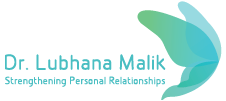At a party recently, I heard a shocked socialite asking a guest, “You neither drink nor smoke?” These days drinking and smoking have become almost an accepted part of socialising. However, it is very important to understand when “you want a drink to have a good time” changes to “you need a drink to have a good time”, thereby, veering towards addiction.
Addiction is of two types: Substance addiction (alcohol/drug) and Non-Substance addiction (sex/food). Substance addiction starts out casually in a social setting, wherein guidance and support are found in extreme (lacking or excessive) in their lives. Gradually, alcohol and drugs diminish an individual’s mind in processing situations, leading to a kind of numbing of the stress or anxiety a person is experiencing. Repetitive use of substance to escape reality leads to addiction. Individuals crave for increased levels of substance to maintain the same ‘high’ because as the tolerance goes up, the linked pleasure with the substance decreases. So, addicts need to keep increasing their substance intake.
Studies reveal that addicts suffer brain damage in areas of learning, memory, and decision making, which makes them become compulsive and destructive. This, in turn, makes them unequipped to function in their daily life. The deterioration also extends to their network of family, friends and work environment, thereby impacting their personal as well as familial life. In fact, the single focus of addicts is to obtain ample doses of their drug, and so develop a tendency to lie, steal and establish association with undesirable elements of society. And, alas, for an addict, life is no more about caring; it just becomes a craving and the next fix.
All addictions have a similar behavioural pattern. Yet, differences exist in the causation, symptoms and treatment. It is important to understand that addiction is a personality disease. Addicts can be charming, manipulative, persuasive, erratic, frustrating and frightening. If you are a spouse, family member or loved one of an addict, please understand that you are at a great risk! Why? Because they will manage to manipulate you into becoming an enabler. Family members, without realizing, encourage the disease of addiction by ignoring or hiding the addict’s behaviour or enabling them to avoid the consequences. Another important point that family members need to be aware of is that, although addiction is not genetic, it is sometimes found to run in the family because one’s personality is developed in the purview of a family where habits and choices are formed because of observational learning, imitation and modelling. It is, therefore, important to recognize that addiction is an illness and should be treated as such.
To reiterate, alcohol and drug addiction is a disease; it is not a judge of character or self-constraint. If you are addicted to drugs but not to alcohol, can you still continue to drink socially? NO! Since addiction is a personality disease, replacing the substance does not fix the disease. As a family member of the addict, you need to recognize the symptoms and get help for the addict because they are incompetent to do so. Psychotherapy is proven effective is helping you change the behavioural reason behind the need for addiction. Joining support groups such as Alcohol Anonymous and Narcotics Anonymous are also extremely helpful. Addiction can be life threatening. Identify an addict. Get them help! Save a life!



